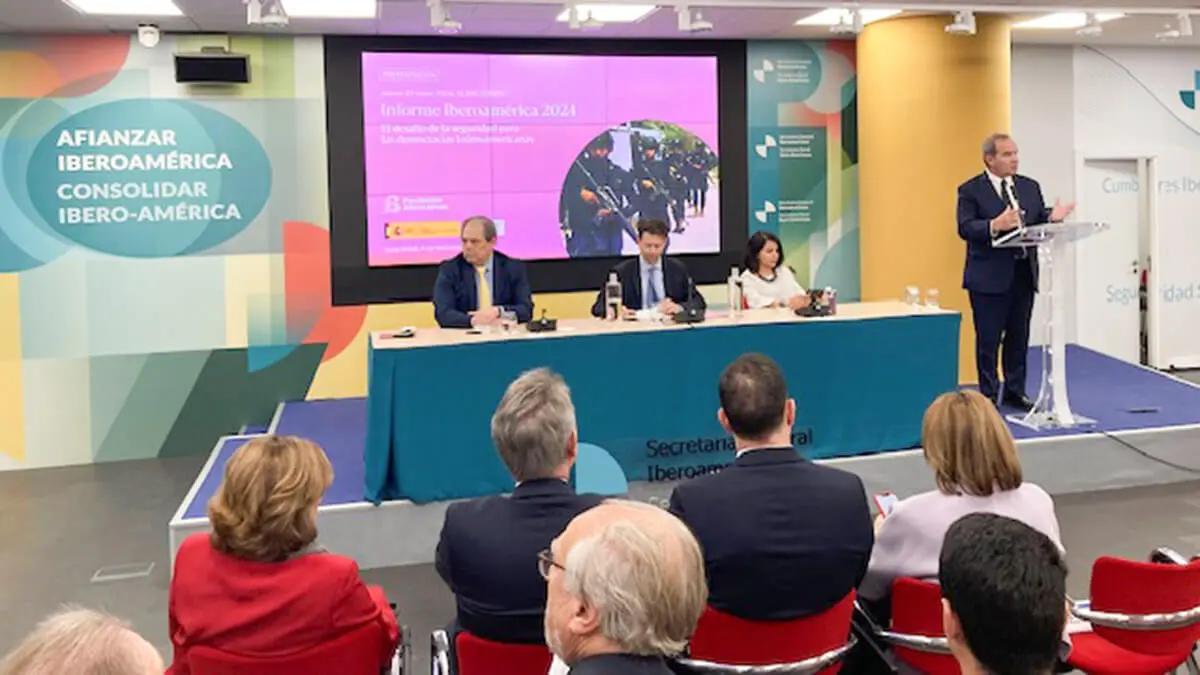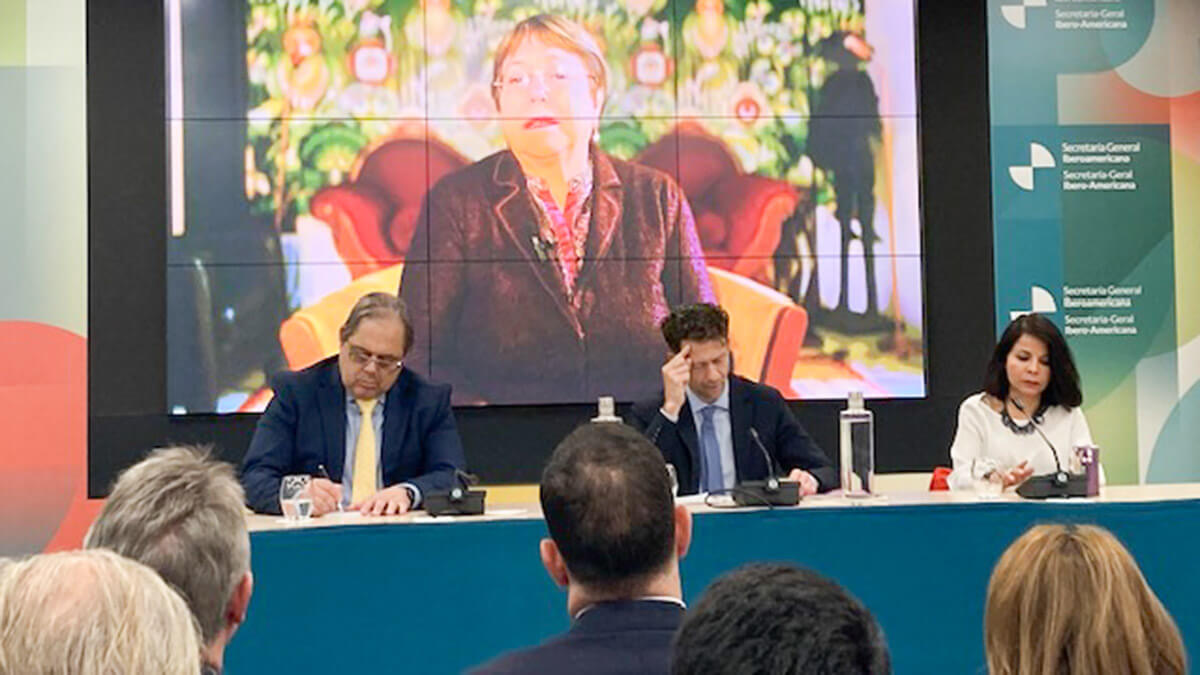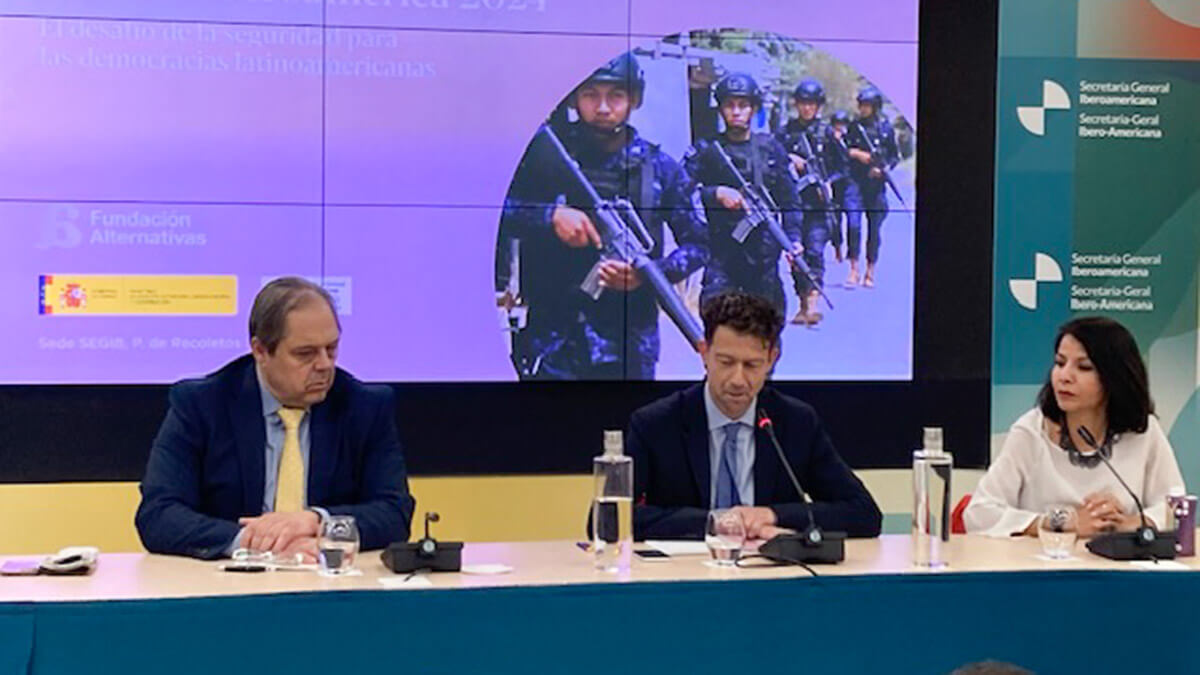Drug trafficking, the great threat to democracy in Latin America

This is the most important challenge facing citizens, as highlighted in the Report Ibero-America 2024, the challenge of security for Latin American democracies, by the Alternativas Foundation, presented at the headquarters of the Ibero-American General Secretariat in Madrid. The head of the latter, Andrés Allamand, stated that "in Latin America there is the paradox that, although outwardly it is a zone of peace, insecurity has become the main concern of citizens, so much so that in recent years it has taken precedence over serious issues such as inequality or poverty".
The study, coordinated by Érika Rodríguez, Director of the Carolina Foundation, highlights that insecurity, by affecting multiple facets of citizens' daily lives, has become an essential condition for testing the good or bad health of democracies.

There is general agreement on this, as highlighted by the former president of Chile, Michelle Bachelet, and Professor Mariano Bartolomé, of the Inter-American Defence College. In Bartolomé's view, the decline of democracy stems from citizens' perception that this system of coexistence neither protects them from being assaulted, extorted and murdered, nor does it give them any assurance that this phenomenon is on the way to abating. As a result, there is an increasing number of segments of society in which citizens from different walks of life will give up part of their rights and freedoms in exchange for greater security.
This is an extremely dangerous drift, and one that makes citizens turn to political figures such as El Salvador's President Nayib Bukele, whose expeditious and ruthless methods against crime are provoking temptations to imitate him both in the Americas and in Asian countries.
As the SEGIB's dialogue between the two sides of the Atlantic made clear, no less dangerous is the debate that has emerged within various governments over whether or not to use the armed forces to combat drug trafficking. This debate is all the more heated as the bloody episodes that exasperate the population continue to occur.

The same study analyses how impunity, corruption and ineffective administration of justice are often both causes and consequences of this phenomenon. As a result, positions are becoming more extreme, calling for tougher action, leading to behaviour that would not stand up to the more benign standard of respect for human rights.
The truth is that the fight against narco-terrorism cannot be said to have resulted in victory for democratic states, which are seeing their powers, such as the exclusive use of force, increasingly curtailed.
Another characteristic of this cancer in Latin America, which is almost unique to the continent, is the social devastation caused by its crimes. Not only do they attack and rob what might be called wealthy citizens or institutions, but they also carry out multiple robberies, extortions and murders of humble individuals and families, which pulverises the best intentions and attempts of governments to promote equality and access to a decent standard of living for citizens.
The study points out that this plague is favoured on a continental scale by the porosity of borders, a characteristic that is aggravated by the intensification of migratory waves. Specifically, the authors of the report delve into the transformations in the police apparatus, the cross-border political economy of drug trafficking and the growth of cybercrime, incorporating a sociological analysis of the phenomenon of organised crime in the region, with special reference to the specific cases of Ecuador and the Colombia-Venezuela border.

